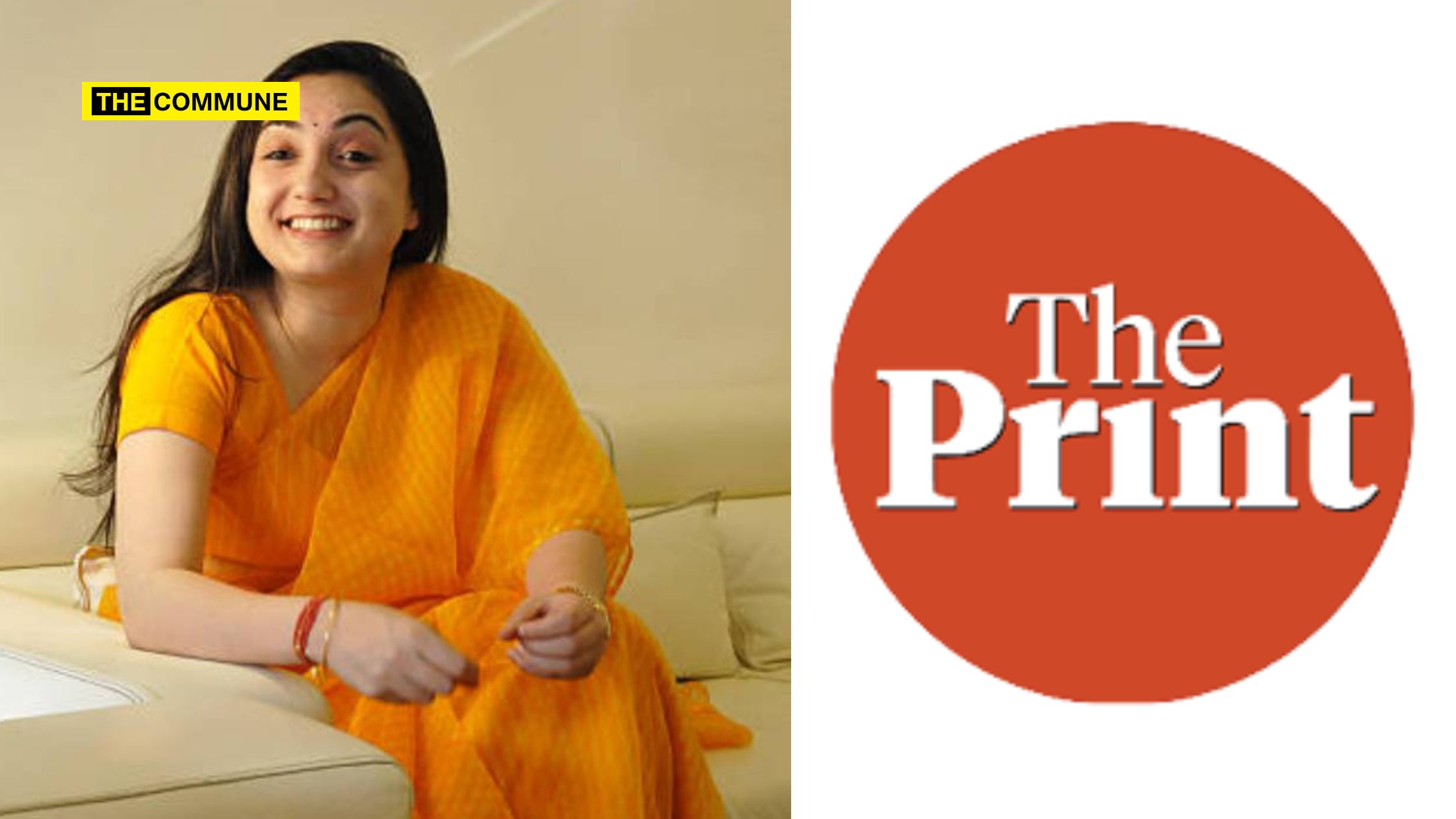
The recent article by The Print titled “BJP panel sitting on her case for over 2 yrs, Nupur Sharma eases back into public life” is a prime example of biased journalism that fails to provide a balanced perspective on a complex and sensitive issue. While ostensibly reporting on Sharma’s gradual return to public life following her suspension from the Bharatiya Janata Party (BJP), the piece falls short in several critical areas.
Why's The Print having problem if Nupur Sharma eases back in Public Life?
Who are they telling this to? pic.twitter.com/ZHVIaokm8I
— Ankur Singh (@iAnkurSingh) October 14, 2024
Omission Of Crucial Context
The most glaring oversight in the article is its failure to address the events that led to Sharma’s two-year absence from public life. The Print conveniently glosses over the intense backlash, death threats, and security concerns that forced Sharma into seclusion. This omission deprives readers of essential information needed to understand the gravity of her situation and the significance of her gradual return to public life.
The Incident And Its Aftermath
In May 2022, Sharma found herself at the center of a dangerous controversy after participating in a TV debate on Times Now. The issue escalated when Mohammed Zubair, an alleged fact-checker, shared a selectively edited video of the debate. This clip presented out of context, made it appear as though Sharma was making offensive remarks about Islam while omitting the provocative comments made by co-panelist Tasleem Rehmani about Bhagwan Shiv, which had prompted Sharma’s response.
The edited video led to Sharma being labeled a ‘blasphemer,’ resulting in death threats from various Islamist groups, including the Taliban and Al Qaeda. Several clerics issued fatwas against her, making her situation life-threatening. The campaign spread internationally, with statements from Qatar and several Islamic organizations further escalating the risks to Sharma’s safety.
Selective Reporting And Double Standards
While The Print meticulously details Sharma’s every public appearance and social media post, it remains conspicuously silent on those who instigated violence against her. The article fails to mention how Zubair’s actions effectively put a target on Sharma’s back, leading to condemnation from Islamic nations and numerous death threats. It neglects to discuss the violent reactions, including murders, that followed her remarks.
The piece also ignores the fact that many of Sharma’s critics continue to enjoy public platforms and lucrative opportunities, highlighting a clear double standard in media coverage. The tone and framing of the article seem to suggest that Sharma should remain in hiding, raising serious questions about The Print’s stance on an individual’s right to live freely and participate in public discourse, especially after facing threats and intimidation.
By omitting crucial context, ignoring broader issues, and presenting a one-sided narrative, the publication has done a disservice to its readers and the principles of fair and balanced reporting. At a time when responsible journalism is more important than ever, such biased reporting only deepens societal divisions and undermines public trust in media institutions.
The Print’s article on Nupur Sharma is a disappointing example of journalism that prioritizes sensationalism over substance. It fails to provide a comprehensive view of the situation, ignoring the complexities and dangers Sharma has faced. This not only misleads readers but also raises questions about the “neutrality” of media. As consumers of news, we must demand better – journalism that informs fully, contextualizes appropriately, and reports fairly, regardless of the subject’s political affiliations or controversial status.
Subscribe to our channels on Telegram, WhatsApp, and Instagram and get the best stories of the day delivered to you personally.




